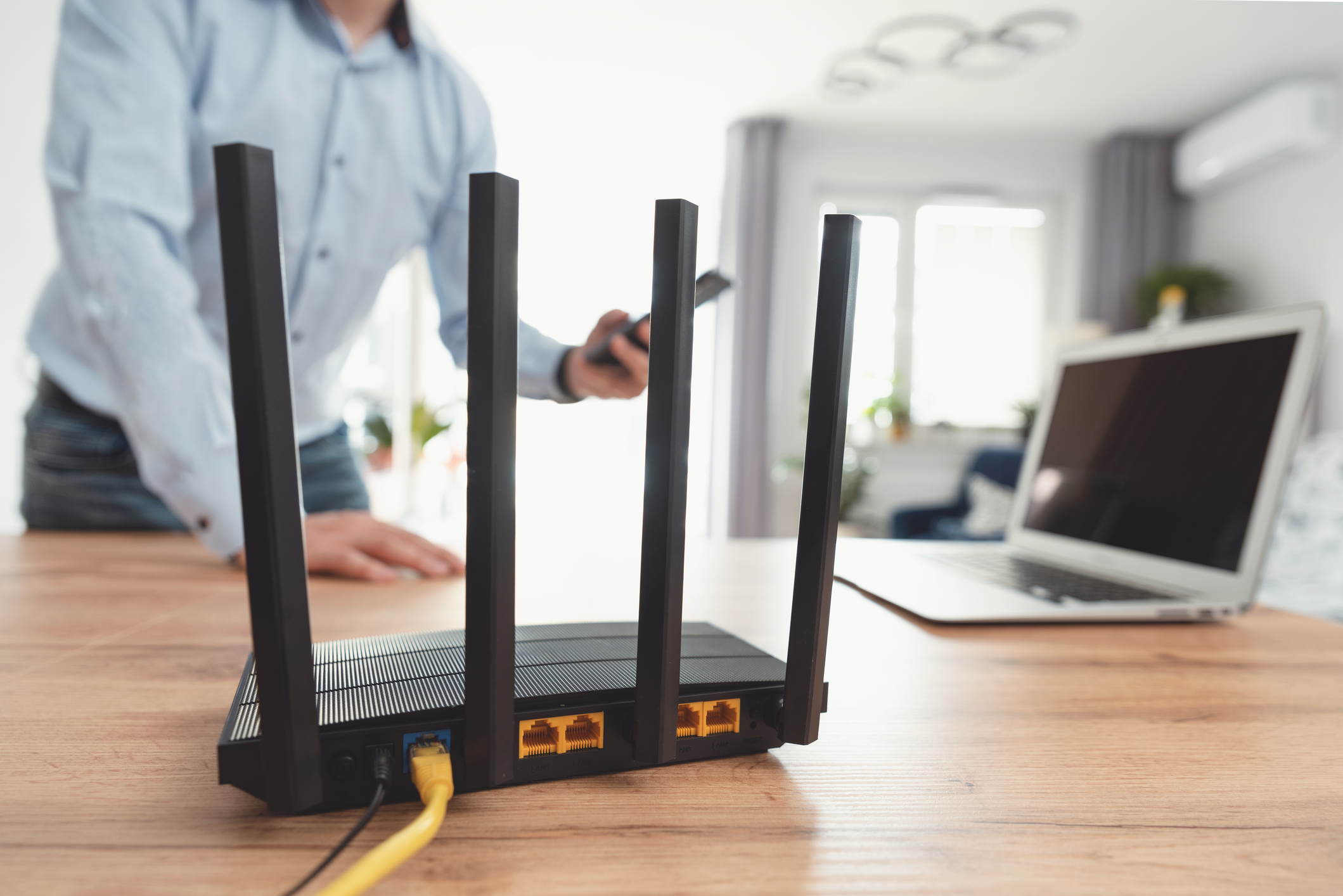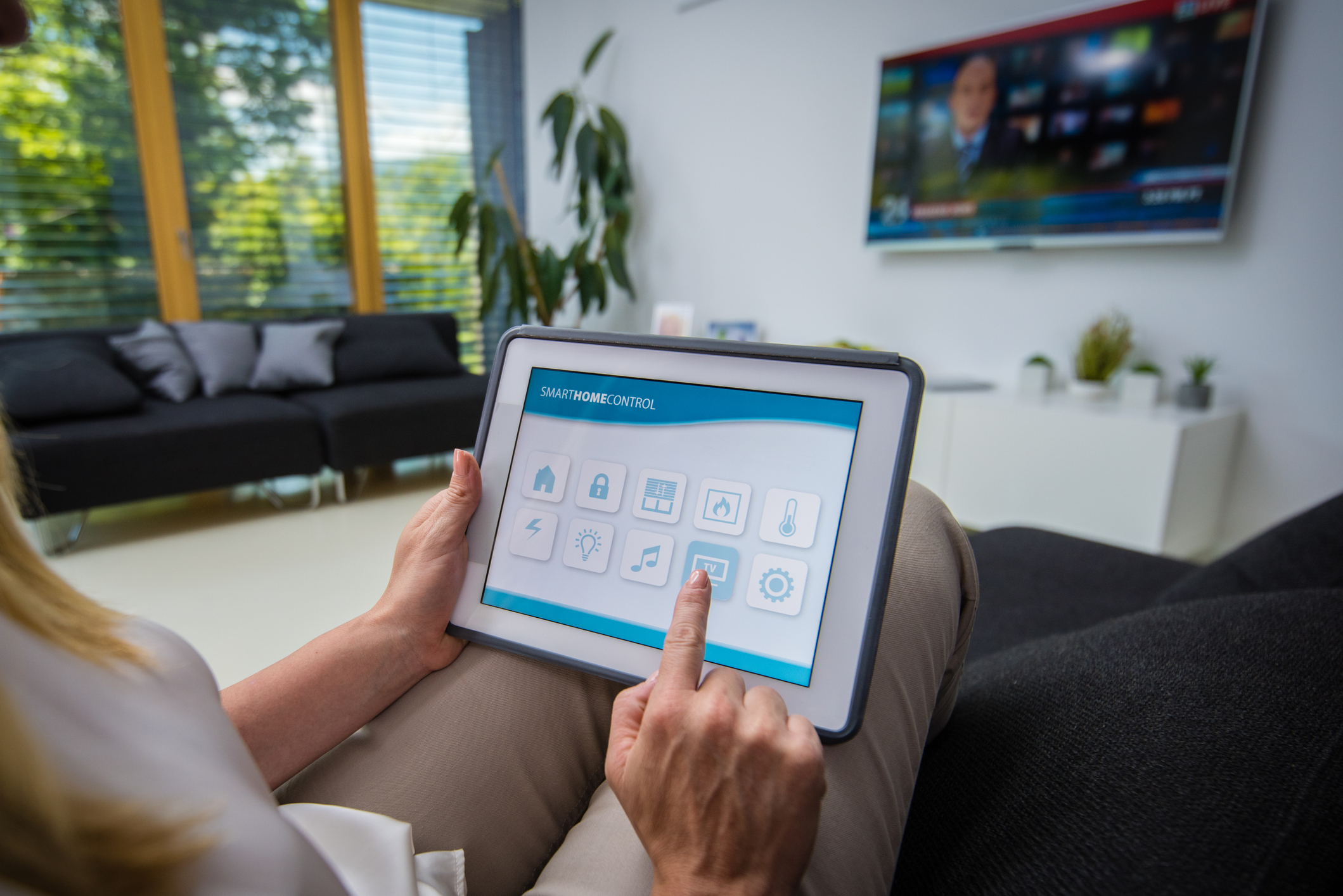Sponsored
How Fast Does Your Internet Really Need to Be?
From solo streamers to bustling smart homes, here’s how to match your internet speed to your lifestyle and know when it’s time to upgrade.

Shopping for internet service can feel overwhelming when you’re faced with dozens of plans, speeds and pricing options. Every provider promises fast and reliable service, but figuring out what you actually need — and what you can skip — can be tricky.
On the other hand, choosing an internet plan that’s too slow can be equally frustrating. Lagging video calls, buffering movies and delayed downloads can interrupt work, school and entertainment. The right internet speed makes a noticeable difference in how smoothly your household stays connected day to day.
By taking a closer look at your household’s size, online habits and number of connected devices, you can narrow down the best options. Whether you live alone and mostly stream movies or share Wi-Fi with a busy family, matching your plan to your real usage helps you save money while keeping your internet experience seamless.
From just $107.88 $24.99 for Kiplinger Personal Finance
Become a smarter, better informed investor. Subscribe from just $107.88 $24.99, plus get up to 4 Special Issues

Sign up for Kiplinger’s Free Newsletters
Profit and prosper with the best of expert advice on investing, taxes, retirement, personal finance and more - straight to your e-mail.
Profit and prosper with the best of expert advice - straight to your e-mail.
How to choose the right internet speed for your household
Everything from your household size to how you use the internet will affect the minimum internet speed you need.
A single user that relies on the internet for a few hours of email usage and entertainment streaming in the evenings will have different speed needs than a family of four who rely on the internet for work, school, gaming and more.
You’ll need to consider several factors when determining your internet speed:
- The number of people in your home: Think about how many people in your home will be using the internet. Most importantly, consider how many people will be using the internet at the same time. You’ll want to buy the internet service that meets your family’s needs during times of peak usage when all family members are online at the same time.
- The number of devices in your home: In addition to the number of people in your home, consider how many devices will be connected to the internet. Laptops, phones and tablets are common, but in today’s smart home era, chances are you have other devices that rely on the internet. Security cameras, security systems and smart home devices like TVs, speakers, appliances, thermostats and more will all use the internet and can increase your speed needs.
- Internet usage activities: The way that your household uses the internet will also help determine the speeds you need. Browsing the internet doesn’t necessarily require high speeds, but you’ll want faster speeds for activities like streaming videos, gaming, or uploading or downloading large files. You’ll want to buy the internet speed needed to support the most demanding activities that you perform.
Recommended Mbps for streaming, gaming and working from home

Internet speed is most commonly measured in Megabits per second (Mbps). The higher the Mbps, the faster data is transferred. Some very fast internet packages measure speed in Gigabits per second (Gbps).
The Federal Communication Commission recommends varying internet speeds for common activities:
- General browsing and email: 1 Mbps
- Telecommuting: 5 to 25 Mbps
- Downloading files: 10 Mbps
- Streaming high-definition video: 5 to 8 Mbps
- Personal video calls, like Skype: 1 Mbps
- Online multiplayer gaming: 4 Mbps
Remember, your internet speed will need to support multiple activities at once, especially if you’re living in a larger household or one with many devices.
The chart below provides some helpful information that can give you an idea of what speed might be best for your home and internet usage.
Speed | How It Performs | Recommended For |
300 Mbps | Download large files fairly quickly; support several HD/4K streams; moderate upload capacity | Small to medium households (2–4 people) streaming video, video calls, light gaming, remote work |
500 Mbps | Smooth, multi-streaming 4K, faster downloads and uploads, good headroom for extra devices | Households with multiple high-usage users, more smart devices, gaming + streaming concurrently |
1 Gbps (1,000 Mbps) | Very fast downloads, good upload experience, minimal buffering or lag | Connected homes with many devices, live streamers, heavy uploading, VR/AR, gaming, power users |
2 Gbps (2,000 Mbps) | Exceptional download/upload speeds, nearly instantaneous transfers of huge files | Power users, home studios or offices within residential setting, future-proofing, multiple simultaneous ultra-high demands |
Switch to select Verizon Home Internet plans and get a Nintendo Switch system on Verizon.
Sign up for a new Fios 1 Gig or Fios 2 Gig plan, keep your service in good standing for 65 days, and redeem this exclusive offer. Terms apply.
How to test your internet speed and what the results really mean
There are several sites and tools you can use to measure your internet speed, and your internet provider may even offer a dashboard for this. One of the easiest options is Google — simply type “internet speed test” into the search bar to access Google’s built-in speed test.
These tests are simple to use: just click the button to start and let it run for a few seconds. When it’s done, you’ll see your download and upload speeds.
Keep in mind, though, that these tests measure the speed reaching the specific device you’re using. They may not reflect the full speed of your internet plan, since results can vary based on your device’s capabilities, Wi-Fi connection, and other conditions.
Still, they’re a good way to gauge your typical speeds. If you consistently see slower results and notice performance issues, it may be time to upgrade to a faster internet plan.
When upgrading your internet plan makes sense (and when it doesn’t)

If your internet service is too slow for your usage, you might encounter problems like website pages that are slow to load, glitching video calls and videos that buffer without playing smoothly. It may make sense to upgrade your internet plan if you have lots of device, perform high-usage activities like online gaming or if you have a large family that heavily uses the internet.
You may not want to upgrade if you only use the internet lightly or moderately. For example, if you mainly browse and use email, but occasionally have to download a large file, it probably doesn’t make sense to pay more for higher speed when you can just be patient and wait a little longer for the larger files to download.
Upgrading your plan may also not help with your internet performance if you’re using outdated technology, like an old router or a very old computer. Instead, try upgrading those devices and see if that solves the problem.
If you do decide to upgrade your internet service, shop around and look for the best price on the internet speed you need. Many retailers offer perks that can increase a plan’s value.
For example, Verizon is offering deals that include a Nintendo Switch or Disney Hulu streaming bundle with certain plans. Taking advantage of these sign-up perks when you’d already planned to upgrade can give you a better value.
Just resist the temptation to sign up for more speed than you need because of the perks offered; ultimately, you’ll be overpaying for internet every month.
Finding the right balance for your internet speed
Choosing the right internet plan doesn’t have to be complicated. By assessing how many people and devices are online in your home — and what activities you do most — you can avoid overpaying for unnecessary speed or struggling with a sluggish connection.
Take time to compare plans, test your current speeds, and look for value-adding perks from providers. The best internet speed is the one that meets your household’s needs efficiently and affordably.
Related Content
Profit and prosper with the best of Kiplinger's advice on investing, taxes, retirement, personal finance and much more. Delivered daily. Enter your email in the box and click Sign Me Up.

Paige Cerulli is a freelance journalist and content writer with more than 15 years of experience. She specializes in personal finance, health, and commerce content. Paige majored in English and music performance at Westfield State University and has received numerous awards for her creative nonfiction. Her work has appeared in The U.S. News & World Report, USA Today, GOBankingRates, Top Ten Reviews, TIME Stamped Shopping and more. In her spare time, Paige enjoys horseback riding, photography and playing the flute. Connect with her on LinkedIn.

